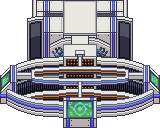Difference between revisions of "Guide to the FTL"
From NSV13
Jump to navigationJump to searchm |
|||
| Line 1: | Line 1: | ||
| + | {{Under construction|reason=This page is not finalized}} | ||
{{Test Merge | {{Test Merge | ||
|link = [https://github.com/BeeStation/NSV13/pull/1814 #1814] | |link = [https://github.com/BeeStation/NSV13/pull/1814 #1814] | ||
Revision as of 06:57, 13 March 2023

|
This section contains Test Merged Information
This section is referencing a Test Merge. |
 Thirring Drive Manifold Instructions
Thirring Drive Manifold Instructions
- Pylon Control:
- Contains information about the various Pylons linked to the machine
- Toggle Power: Activates/Deactivates the Linked Pylon, starting to spin it up
- Close Shield: Makes the Blast Shields close down around the Pylon, protecting you from electrical shocks at the cost of increased nucleium draw.
- Manifold Controls:
- Spool Drive: I don't know, makes the thingies go zoom and charges the FTL.
- Enable Autospool: Self-explanatory.
 The Art of Outrunning the Speed of Light
The Art of Outrunning the Speed of Light
- FTL Pylons use nucleium and a handful of power, as a treat, to spin up.
- Keeping pylons spinning will increase their power draw, and if they are closed it will instead increase their nucleium draw.
- When the pylons are spinning the FTL manifold (main drive) goes zoomie mode
- So in short: spin up the pylons before spooling the FTL, and it will charge a *lot* faster, after that you turn the pylons off again to avoid creating a power sink.
- We must construct additional pylons (the max amount per drive is four)
- If there is not enough Nucleium being pumped into the FTL Pylon then it will start spooling down, eventually shutting down.
